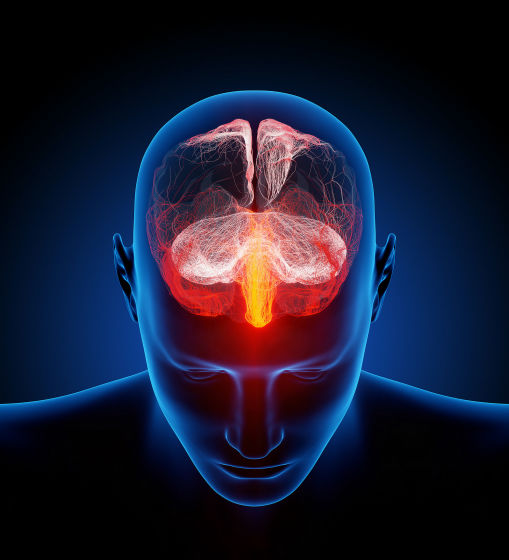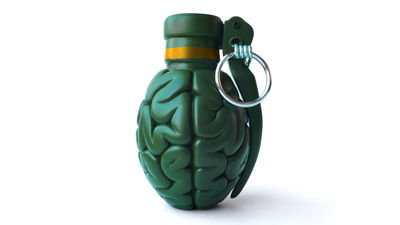The possibility that a person diagnosed with Alzheimer is not Alzheimer's really is emerging

ByMeritxell Garcia
In a large-scale study targeting dementia patients, there are people who are not Alzheimer's actually being diagnosed as being Alzheimer, announced that there is a possibility that it may be necessary to change the treatment plan It was done.
Alzheimer's Association Launches $ 20 Million Lifestyle Intervention Trial in the U. S. to Prevent Cognitive Decline
http://alz.org/aaic/releases_2017/AAIC17-Wed-briefing-Developing-Topics.asp
PET scans show many Alzheimer's patients may not actually have the disease - The Washington Post
https://www.washingtonpost.com/national/health-science/brain-scans-show-many-alzheimers-patients-may-not-actually-have-the-disease/2017/07/18/52013620-6bf2-11e7-9c15-177740635e83_story.html
At Alzheimer 's Association International Conference (AAIC), we started a study to conduct amyloid PET scans for patients diagnosed with dementia in 2016. "Amyloid β protein" detected by amyloid PET scan is a biomarker of Alzheimer type dementia. If we can image the amount of amyloid β protein accumulated in the brain, it is thought that prediction of Alzheimer type dementia will be possible. This large-scale project that AAIC takes over four years is called "IDEAS", and it is called "IDEAS", which is the result of the public medical insurance system for the elderly and the disabled in the United StatesMedicareWe plan to scan the brain for 18,000 people diagnosed with mild cognitive impairment (MCI) and atypical dementia.
This IDEAS interim report was announced in July 2017, so far, 4000 patients have participated in the study.
According to researchers belonging to the University of California's Memory and Aging Center, 54.3% of patients diagnosed with MCI, 70.5% of patients diagnosed as atypical dementia, "amyloid plaque It was discovered that it was discovered. Due to the presence of amyloid plaque, it can not be said that it is Alzheimer's, but on the other hand there are no Alzheimer's patients with no "amyloid plaque". This scan result indicates that patients diagnosed as MCI or atypical dementia may be misdiagnosed as Alzheimer's.

ByArs Electronica
James Hendrix of the Alzheimer Association says, "People diagnosed with Alzheimer's possibility may be prescribed medications such as Aricept and Namenda, if they undergo PET scans and amyloid beta is accumulated in the brain Their doctor will definitely stop giving out medicine and think about another way. "According to the results of this survey, the direction of Alzheimer's treatment changes and unnecessary medical care Researchers are thinking that it will lead to cost reduction.
Over the past decades amyloid plaques could not be found until autopsy, so Alzheimer 's diagnosis was only guessed from patient symptoms. However, with the introduction of amyloid PET scan to detect plaque, it has become possible to investigate the state of the brain for living patients and make a diagnosis. Currently, research is continuing so that diagnosis can be made only by blood test.
However, such a PET scan is not covered by insurance, and it costs 3000 to 4000 dollars (about 330,000 to 440,000), which is a high cost. The Medicare Medicaid Service Center (CMS), a federal agency, in 2013 declared PET scan costs for research because it is "there is no proof that there is no prospect of recovery and there is no evidence to change patients with limited treatment" I refused to cover it. After that, however, CMS has provided $ 1 million (about 110 million yen) of funds to IDEAS research, and we are refunding expenses to patients who have received PET scans. Researchers hoped that by investigating the usefulness of PET scans, it is hoped that insurance will cover the cost of PET scans in the future.

ByTaki Steve
As of 2017, as many as 400 physicians have registered their patients in the IDEAS study, and the research shows what kind of diagnosis the doctor made from the symptoms of the patient and the result of the PET scan It is recorded whether the treatment policy was changed to. Compared before and after the PET scan, 2/3 of all doctors are changing the treatment plan. "We saw that 30% of the total would change the treatment plan, but in reality 66% of the doctors changed the plan, which is a very big thing. I realized that many of the patients taking medication do not actually need medication. "
Related Posts:
in Science, Posted by darkhorse_log







